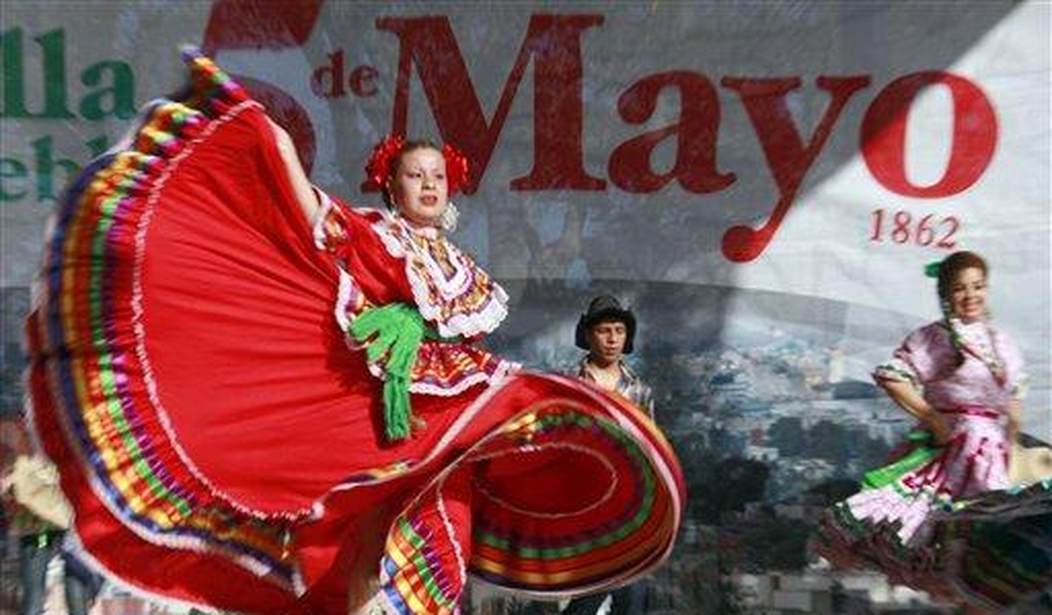Today, Americans – perhaps unwittingly – come together to eat queso, drink margaritas, and don colorful attire in celebration of Mexican General Ignacio Zaragoza’s victory over the Second French Empire in the Battle of Puebla during the Franco-Mexican War.
Although this holiday is—for all intents and purposes—an American celebration of Mexican culture, the 5th of May actually has a much larger significance within the Latin American historical context. After all, French Emperor Napoleon Bonaparte opened the door for revolution across the Spanish Empire on May 5th, 1808, when he forced the abdication of the Spanish King Charles IV and his son Ferdinand VII in favor of his brother, Joseph Bonaparte.
While many non-Hispanic historiographies suggest that Latin American revolutions were primarily the product of Enlightenment thought and the examples put forth by the French, American, and Haitian revolutions, it's important to note that these events did not trigger uprisings in Latin America. Instead, the reasons for revolution were homegrown in nature, and it wasn't until the happenings at Bayonne that the Latin American revolutions began.
The Western intellectual tradition in Latin America dates back to 1538 when the first of many imperial universities was founded in the New World. Modeled after the University of Salamanca—Spain’s oldest and preeminent university—these schools would bring the scholastic tradition to the Americas and offer a lens through which the colonists could explore social, economic, and moral issues of their day, while maintaining the Catholic tradition of reconciling faith and reason. As former Mont Pelerin Society President Leonard Liggio once noted, “modern economics, human rights, and international law were founded in the Hispanic universities of the 16th and 17th centuries.”
Recommended
But this liberal spirit runs deeper still. Before the Absolutist age, the Hispanic world flourished under institutions inspired by Germanic concepts of limited monarchic power and the rights of freeman brought to Iberia by the Visigoths in the early 5th century. It is no accident that Alphonso V’s Charter of Leon — considered Europe's first charter of citizen rights — preceded the signing of the Magna Carta by some 200 years.
Not even the American founders could deny the intellectual importance of Hispanic legal thought, and John Adams wrote about his admiration for Iberian fueros in letter IV of his A Defence of the Constitutions of the Government of the United States of America.
While evidence certainly suggests that Latin American revolutionary leaders—like Bolivar, San Martin, or Hidalgo—were well-versed in European Enlightenment thought, it was the work of men like Francisco Vitoria, Saravia de la Calle, and Juan de Mariana that ultimately guided the New World’s intellectual tradition.
It should, therefore, be noted that more than a century before Rousseau wrote his famous “Contrat Social,” Francisco Suarez outlined his own idea of a contract between the king and his people. In "De Legibus ac Deo Legislatore," published in 1612, the Jesuit intellectual outlined the pactum translationis – the idea that sovereignty resides essentially in the people and returns to them in the absence of a legitimate ruler.
The importance of the pactum translationis within the context of the abdications at Bayonne can be clearly seen in the Venezuelan Declaration of Independence of 1811, which states that the right to self-governance was "recovered justly and legally...in consequence of the occurrences in Bayonne and the occupation of the Spanish throne by conquest, and the succession of a new Dynasty, constituted without our consent."
Here, one can clearly see that the legal principle invoked for liberation from the Crown in Bolivar’s own country was Suarez’s pactum translationis. While other intellectual movements certainly played a role in forming many of the heroes that led the various colonies to freedom, from the earliest days it was the people’s understanding of their relationship to their king and their distrust of tyranny which led to popular uprisings.
While loyalty to the King was proven through events such as the 1797 Battle of San Juan or the 1807 defense of the River Plate, the deeply rooted notion of pactum translationis meant that shortly after the King’s abdication, revolution would rage across the continent, 1808 to1833.
Although Latin America’s legal and intellectual tradition would move away from its scholastic Golden Age, the shadows of the School of Salamanca can still be seen across the continent. One poignant example is Mexico’s 1917 Constitution—still in use today—which claims that “national sovereignty resides essentially and originally in the people” and that “All public power originates in the people.”
Ultimately, Napoleon's actions at Bayonne inadvertently opened the door for revolution across Latin America—finally providing a catalyst to join the rest of the world on the path to independence. The Latin American revolutions were not simply the result of Enlightenment thought, but rather, the manifestation of long-held ideals of self-governance and the Hispanic world's legal and intellectual tradition. As we celebrate Mexican culture on this Cinco de Mayo, let us also remember Napoléon—Latin America's unintended liberator.

























Join the conversation as a VIP Member